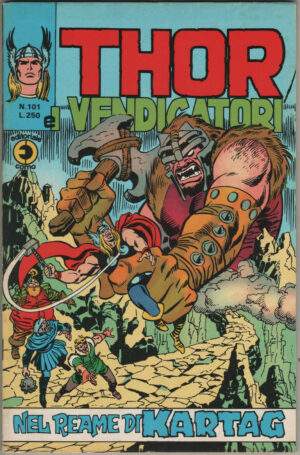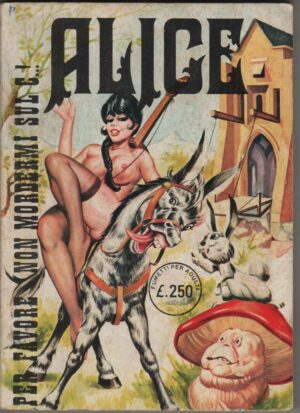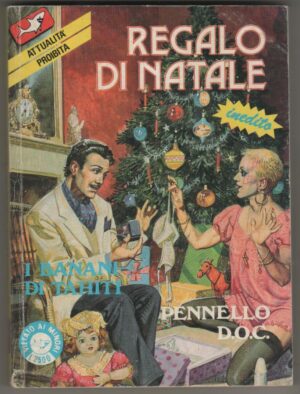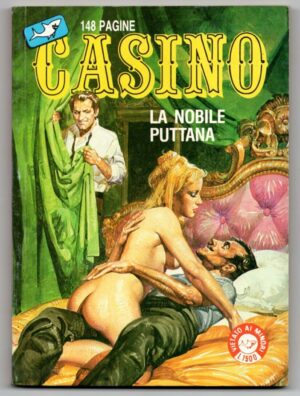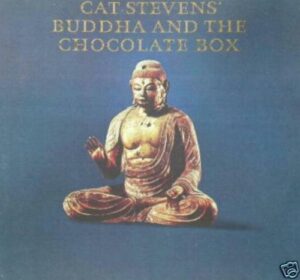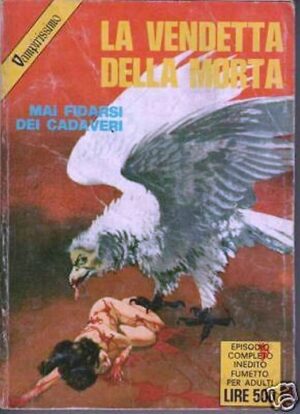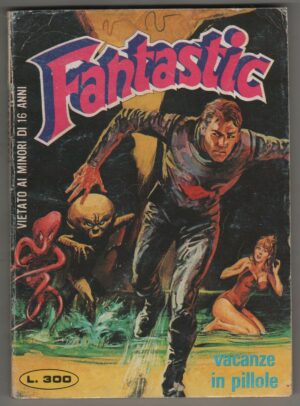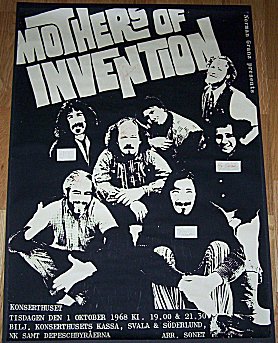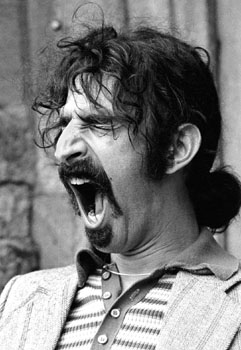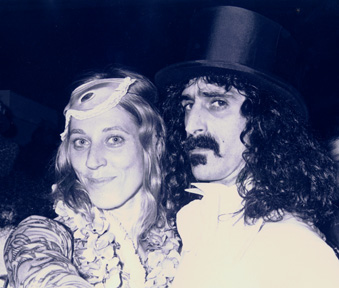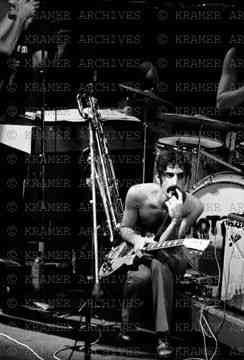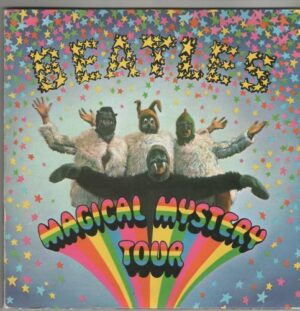Description
PREMESSA: LA SUPERIORITA’ DELLA MUSICA SU VINILE E’ ANCOR OGGI SANCITA, NOTORIA ED EVIDENTE. NON TANTO DA UN PUNTO DI VISTA DI RESA, QUALITA’ E PULIZIA DEL SUONO, TANTOMENO DA QUELLO DEL RIMPIANTO RETROSPETTIVO E NOSTALGICO , MA SOPRATTUTTO DA QUELLO PIU’ PALPABILE ED INOPPUGNABILE DELL’ ESSENZA, DELL’ ANIMA E DELLA SUBLIMAZIONE CREATIVA. IL DISCO IN VINILE HA PULSAZIONE ARTISTICA, PASSIONE ARMONICA E SPLENDORE GRAFICO , E’ PIACEVOLE DA OSSERVARE E DA TENERE IN MANO, RISPLENDE, PROFUMA E VIBRA DI VITA, DI EMOZIONE E DI SENSIBILITA’. E’ TUTTO QUELLO CHE NON E’ E NON POTRA’ MAI ESSERE IL CD, CHE AL CONTRARIO E’ SOLO UN OGGETTO MERAMENTE COMMERCIALE, POVERO, ARIDO, CINICO, STERILE ED ORWELLIANO, UNA DEGENERAZIONE INDUSTRIALE SCHIZOFRENICA E NECROFILA, LA DESOLANTE SOLUZIONE FINALE DELL’ AVIDITA’ DEL MERCATO E DELL’ ARROGANZA DEI DISCOGRAFICI .
THE MOTHERS OF INVENTION
(FRANK ZAPPA)
the grand wazoo
Disco LP 33 giri , reprise, K – 44209 , 1973 , UK, first press
ECCELLENTI CONDIZIONI, vinyl ex++/NM , cover ex++/NM, original stickered cover / adesivo originale in copertina.
Like its immediate predecessor, Waka/Jawaka, The Grand Wazoo
was a largely instrumental jazz rock album recorded during Frank
Zappa’s convalescence from injuries sustained after being pushed off a
concert stage. While Zappa contributes some guitar solos and occasional
vocals, the focus is more on his skills as a composer and arranger.
Most of the five selections supposedly form a musical representation of
a story told in the liner notes about two warring musical factions, but
the bottom line is that, overall, the compositions here are more
memorably melodic and consistently engaging than Waka/Jawaka.
The instrumentation is somewhat unique in the Zappa catalog as well,
with the band more of a chamber jazz orchestra than a compact rock
unit; over 20 musicians and vocalists contribute to the record. While Hot Rats is still the peak of Zappa’s jazz-rock fusion efforts, The Grand Wazoo comes close, and it’s essential for anyone interested in Zappa’s instrumental works.
The Grand Wazoo is a 1972 jazz fusion album by Frank Zappa.
Composed and recorded during Zappa’s period of convalescence following
his assault in London, the album, along with its “twin brother” Waka/Jawaka, represent Zappa’s foray into big band fusion, the logical progression from Hot Rats,
which used a much smaller lineup. Zappa was also producer and principal
composer for Jean-Luc Ponty’s album “King Kong” during this period and
this album may essentially be the 4th album in Zappa’s Jazz foray.
Etichetta: REPRISE
Catalogo: K – 44209
Matrici : K 44209 – A1 / K 44209 – B1 rays + kips
- Supporto:vinile 33 giri
- Tipo audio: stereo
- Dimensioni: 30 cm.
- Facciate: 2
- Gatefold / copertina apribile, mustard steambot label, white paper inner sleeve, original greek style sticker affixed to the cover
Fare l’ennesima introduzione a quel genio incommensurabile che porta il nome di Frank Zappa
sarebbe a dir poco inutile, si ripercorrebbero sempre le solite parole
dato che il compositore italo-americano è stato forse l’artista
positivamente più aggettivato di tutta la storia della musica
contemporanea. Dopo i vari indelebili capolavori (Hot Rats, Uncle Meats, Absolutely Free, Freak Out) Zappa non perde un secondo del suo tempo e a brevissima distanza (si tratta di qualche mesetto) dall’altra perla Waka/Jawaka, compone col supporto d’un orchestra monumentale The Grand Wazoo,
un’altro capolavoro che esce fuori da qualsiasi schedatura musicale. Mi
verrebbe da considerarlo come progressive rock, ma non basta perchè in
questo disco jazz, classica, psichedelica e chi più ne ha più ne metta
si miscelano in maniera a dir poco ipnotica ma comunque esaltante, da
far rizzare i capelli in testa.
Il disco viene aperto con i soli 13 minuti dell’omonima The Grand Wazoo,
in cui archi, corni, chitarre, sassofoni, fiati, percussioni e moog si
legano compattandosi in una struttura di base indistruttibile,
movimentata, dinamica e sempre estremamente coinvolgente per la sua
capacità di abbagliare. Zappa, supportato da questa titanica
“rock-orchestra” si sbizzarisce nel dirigere sfuriate strumentali
davvero fulminanti, slega il suo estro infatuando qualsiasi cosa
incontri costruendo un giardino di perle dorate. L’intro ipnotico e
psichedelico della successiva For Calvin ci porta su
sponde più calme e controllate ma non per questo meno sperimentali,
sono infatti moltissimi i virtuosismi compositivi che rendono questa
canzone superba. Con Cletus Awreetus Awrightus invece
veniamo riportati nell’atmosfera della opener, quindi saranno di nuovo
i soliti mastodontici insiemi di archi, fiati e chitarre ad ammaliarci
con la loro potenza inenarrabile. Ogni secondo che passa è un colpo che
Zappa ci infligge lasciandoci a terra per la sua forza, tra una risata
divertita e un’espressione sbalordita per ciò che alle nostre orecchie
giunge.
Il disco prosegue senza presentare nemmeno un minimo di calo ritmico, sono infatti le note e i battiti della maestosa Eat The Question
ad accompagnarci ancora in tale pianura sulla quale si combatte questa
suprema battaglia di strumenti che corrono, balzano e volano tra
stacchetti jazz e orchestrazioni tipicamente classiche, passando per
refrain decisamente rock-oriented e riff dalle venature psichedeliche.
La base ritmica di ogni canzone è qualcosa di allucinante per la
propria struttura, dinamica e folle e soprattutto per come vien suonata
dal mitico Ansley Dunbar che davvero non sa cosa voglia dire
la voce “fermarsi”, e tutto ciò è perfetto per Zappa che in questo
disco ha impresso con una classe sopraffina i suoi lati più folli e
sperimentali sotto il profilo compositivo e registico (nulla a che
vedere però con Jazz From Hell che è forse uno degli album più schizofrenici della storia della musica).
Si arriva così alla conclusiva Blessed Relief,
una vera perla di melodie sublimi arrangiate perfettamente e amalgamate
l’un l’altra senza un minimo errore. I soliti refrain di fiati vengono
seguiti da stacchetti meno orchestrali ma sempre superbi, accompagnati
dal solito ritmo jazz che per tutto il disco si propaga come una
piccola goccia in un lago, sino a terminare senza lasciar più traccia
della sua scia.
In questo disco Zappa ha, diciamo, messo da
parte i suoi assoli e le sue frenesie chitarristiche per soffermarsi
più su una composizione orchestrale e monumentale, e dato che il
compito gli è riuscito quasi alla perfezione, non si possono non cantar
le lodi per questo lavoro che, come tutti gli altri della sua carriera,
rappresenta l’ennesima testimonianza che Francis Vincent Zappa, nato il 21 Dicembre 1940 a Baltimora, è il più grande artista che la musica abbia mai conosciuto in tutta la sua esistenza.
Consigliatissimo soprattutto a chi voglia farsi un’idea di cosa voglia dire la parola “orchestral-rock”. Un’altro capolavoro di musica universale. Superbo, come al solito.

Track listing
Side one
Side two
|
Personnel
Zappa’s second The “Eat It should be noted that The Grand Wazoo |
|
|
Frank Vincent Zappa (Baltimora, 21 dicembre 1940 – Los Angeles, 4 dicembre 1993) fu un musicista, chitarrista, compositore e polistrumentista statunitense. Per molto tempo lo stesso Zappa ha creduto che il suo vero nome fosse Francis (in alcuni dei suoi primi album è riportato il nome di Francis). Definire il genere musicale di Zappa è praticamente impossibile, ma si può affermare che fosse coinvolto in ambiti musicali come rock, blues, jazz, fusion, e musica classica.
Nato a Baltimora (21 dicembre 1940) nello stato del Maryland (USA), nella sua dinastia figurano italiani, greci, arabi e francesi. Figlio di un ingegnere chimico siciliano di Partinico (PA) che lavorava per il governo americano alla “Edwards Air Force Base” vicino a Los Angeles, Frank era il primo di quattro figli, con due fratelli ed una sorella. Nel gennaio del 1951, la famiglia Zappa si trasferì a Monterey, in California, perché Frank soffriva d’asma. A causa del lavoro del padre la famiglia Zappa traslocò molto spesso: dopo Monterey la famiglia si trasferì a Pomona (California), quindi a El Cajon, e poi ancora San Diego. Nel 1955 nuovamente si spostarono alla volta della piccola cittadina Lancaster. Dall’età di 15 anni Frank studiò in sei diverse scuole superiori, cosa che potrebbe aver contribuito al suo senso di alienazione nella vita adulta. Impressionato dalle composizioni e soprattutto dalla concezione ritmica di Edgar Varèse, ma anche dai grandi bluesmen, Zappa passerà con disinvoltura dal rock al R&B, dalla “canzonetta” alla colonna sonora per cartoon immaginari, fino ad esperimenti di stampo barocco eseguiti al synclavier, Poliedrico e geniale chitarrista, divenne noto in tutto il mondo con il suo gruppo (The Mothers of Invention) nel 1966, grazie all’incisione del concept album Freak Out!: il disco fece scalpore non solo perché era uno dei primi doppi album della storia del rock (dopo Blonde on Blonde di Bob Dylan), ma anche per i testi e la parodia dissacrante del rock degli anni sessanta. In seguito Zappa intraprese la carriera solista sfornando più di 60 produzioni eterogenee, sempre pregne di un forte senso dello humour (con testi dichiaratamente misogini e volgari), scagliato contro l’ordine costituito, l’industria della musica ed i politici (“Scrivo brutta musica perché l’America è brutta”, Zappa morì a causa di un cancro alla prostata il 4 dicembre 1993. La sua sterminata produzione musicale è ancora in parte sconosciuta: |

In
1995, Frank
Zappa was posthumously inducted in the Rock and Roll
Hall of Fame by Lou
Reed “One of the things I most regret is not knowing Frank better,”
Reed admitted –which no doubt caused some to wonder why Lou was
on stage to begin with. Frank’s daughter, Moon, gave a borderline-tearful acceptance speech, ending with
“I am sorry my Dad’s not here to receive this. He would have enjoyed
it.”
1995, Frank
Zappa was posthumously inducted in the Rock and Roll
Hall of Fame by Lou
Reed “One of the things I most regret is not knowing Frank better,”
Reed admitted –which no doubt caused some to wonder why Lou was
on stage to begin with. Frank’s daughter, Moon, gave a borderline-tearful acceptance speech, ending with
“I am sorry my Dad’s not here to receive this. He would have enjoyed
it.”
For many devoted
followers of Frank Zappa’s music and iconoclastic personality, the
thought of Frank “enjoying” the Rock and Roll Hall of Fame is dubious.
Frank Zappa might have placed his induction
in Cleveland’s Rock Hall in the same category as other tributes
by rock
journalists, record executives, and radio station programmers
that came very late in his career. Zappa fought these guys for years
just to stay in the business and he knew they never really understood
what he was up to musically.
“For
each type of music,” he once said, “there are listeners who think
the reviewers don’t know what they’re talking about. These listeners,
when excited about a certain group or style of music, will fight for
it in their hometowns. These are the people who have made it possible
for me to stay in music through the years — and I thank them for
it.”
 To
Tosome, Zappa remains an experimenter, a “fringe artist,” or worse (as
recently dismissed by a work friend as “60’s drug music.”) Zappa’s
mentor, the classical composer, Edgar
Varese, summed it up when he disapproved of all the “isms,” and
called himself “One-all alone.” Zappa certainly was that — an individual.
Frank
admired and promoted Varese throughout his career. Varese’s quote
— “The modern-day composer refuses to die” — was a motif on Zappa’s
record covers. Frank used that idea repeatedly in his interviews
and publicity. (For a complete understanding of Edgar Varese —
and, specifically, why Zappa thought of him as his own musical hero
— listen to “The Complete Works” by the Royal Concertgebouw Orchestra,
Asko Ensemble, conducted by Riccardo Chailly, on London) or visit Edgard
Varese: his Life and Works)
I was 13 when
Zappa’s first record –The Mother’s of Invention’s FREAK
OUT — was released in 1966 . I bought it on the merits of its
bizarre cover art alone. I knew nothing about this “group” and had
never heard any of their music. I loved it at first listen. I immediately
thought I understood Zappa. He was telling me that it was somehow
OK to be me, to be human.
 Beneath the outlandish schtick, disparate chordal structure, and
Beneath the outlandish schtick, disparate chordal structure, and
poly-rhythms, there was a humanist here — cutting through the pop
culture with cutting-edge songs like “Who
Are The Brain Police?” and “Trouble Coming Every Day.” I was
“hooked on Zappa” from the beginning.
For quite awhile
I felt alone in my appreciation for these outrageous characters,
as my parents really hated the “Mothers” and most of my friends
were into the ultra-hip music of the 60’s, not the retro “do-wop”
of “Go Cry On Somebody Else’s Shoulders” or the strange, seemingly
unorganized sounds of “Return of Monster Magnet.”
However, I
was notalone and have since personally met a wide array of
folks — from a Swedish scientist visiting Georgetown University
(who was an even bigger fan than me) to a fireworks vendor in North
Carolina’s “Outer Banks” (who had a bigger “live tape” collection)
who agreed with me that Frank Zappa was one of the 20th Century’s
greatest musicians.
Of course,
the sold-out crowds at Zappa’s concerts spoke for his popularity
— but “greatest musician?” Isn’t that stretching the Zappa hype
beyond support?
Here are a
few quotes from others who share my opinion of Frank Zappa — a
truly “one of a kind” artist, and, yes folks, a musical genius.
 “I
“I
was surprised that someone could be so multi-talented, such a good
writer, and so articulate a composer. Moreover, he was a virtuoso
technician on guitar and had an incredible sense of humor. He had
all those skills and the ability to conceive, write, and
orchestrate very complex orchestral scores.
— Kent Nagano, music director of the Opera de Lyon. Paris.
“It was
important that Frank be shown to the world not as a rock star, but
as a serious composer.”
— Dr. Dieter
Rexroth, director of the Frankfurth Festival
“My first
reaction was that I couldn’t believe it. When I learned that Frank
Zappa was a composer of serious classical music, I told my partners,
“Okay, there’s some of these pop stars who try to do this kind of
stuff, but I am sure that he is just a beginner.” I was really surprised
when I saw the high quality of compositions like “Mo ‘N Herb’s Vacation.”
— Andreas
Molich-Zebhauser, director of the Deutsche Ensemble Academy
“Frank was
always respectful and very straightforward. If some problem came
up, he’d ask what I thought could be done about it, because he didn’t
want to put any ideas in my head. He wanted to know what my thoughts were.”
— Aynsley
Dunbar, former Zappa drummer, 1970-3
“Americans
are really suspicious of anything cerebral, and Zappa didn’t disguise
his intelligence well enough. In addition to being a man of wide-ranging
talent, one amazing thing that always struck me about Frank was
his melodic dimension…..Frank Zappa was my Elvis.”
— Matt Groening, creator of The Simpsons
“Never stop
until your good becomes better, and your better becomes the best.” — Frank Zappa

I have continued to enthusiastically follow Zappa’s career through
60-plus commercial releases over a 34 -year span. I had the advantage
and pleasure of seeing Zappa perform at:
Atlantic City
NJ — Atlantic City Race Track — August 3, 1969 (w/
Ray Collins, Roy Estrada, Jimmy Carl Black, Billy Mundi, Ian Underwood,
Don Preston, Bunk Gardner, Motorhead Sherwood)
Baltimore MD
— Lyric Theatre —October
17, 1971 (w/ Mark Volman, Howard Kaylan, Jeff
Simmons, Aynsley Dunbar, Ian Underwood, George Duke)
Washington DC
— DAR Constitution Hall — November 11, 1972 (w/ Tony Duran, Jerry Kessler, Dave Parlato, Jim Gordon, Tom Raney,
Ruth Underwood, Ian Underwood, Bruce Fowler, Malcolm McNabb, Tom
Malone, Earle Dumler, Glenn Ferris, Sal Marquez, Ken Shroyer, Mike
Altschul, Joanne McNabb, Jay Migliori, Ray Reed, Charles Owens)
Anapolis,
MD — Carr’s Beach — Summer, 1973 ( w/ Jean
Luc Ponty, Tom Fowler, Ralph Humphrey, Ruth Underwood, Ian Underwood,
George Duke, Bruce Fowler, Sal Marquez, Kin Vassey) Recently
I received a tape recording of this concert from Bruce Bubier, along
with some great notes, which I will post here in the near future.
Thanks Bruce. (Contact me at SMooore@aol.com for info on how to
obtain a copy of this concert)
College Park
MD — Ritchie Coliseum, University Of Maryland — April 3, 1974
Washington
DC — Constitution Hall — May 4, 1974 (w/
Jeff Simmons, Tom Fowler, Chester Thompson, Ralph Humphrey, Napoleon
Murphy Brock, Don Preston, George Duke, Bruce Fowler, Walt Fowler)
Largo MD —
Capitol Center — November 4, 1976 (w/
FZ, Roy Estrada, Terry Bozzio, Napoleon Murphy Brock, Andre Lewis,
Norma Bell)
College Park
MD — University Of Maryland, Cole Fieldhouse — October 29, 1978 (w/
Patrick O’Hearn, , Denny Walley, Warren Cucurullo. L. Shankar ,
Arthur Barrow, Vinnie Colaiuta, Ed Mann, Tommy Mars, Peter Wolf)
Washington
DC — Warner Theatre — February
8, 1988 (w/
Ike Willis, Mike Keneally, Scott Thunes, Chad Wackerman, Ed Mann,
Bobby Martin, Bruce Fowler, Walt Fowler, Paul Carman, Albert Wing,
Kurt McGettrick)
Highlights:
At the 1969 Atlantic City Pop Festival (“King Kong”) and in concerts
at Baltimore’s Lyric Theatre (“Mud Shark” and “Billy the Mountain”
in one afternoon), Washington, DC’s Constitution Hall midnight show
with the Grand Wazoo orchestral line-up), at Carr’s beach near Annapolis
(where Frank sang a long, probably ad-libbed song about Godzilla
roaming his birthplace, Baltimore), and at my alma matter, Maryland
University in 1974– where I finally got a chance to talk to the
man backstage and tell him how much I admired him.
On that occasion,
Frank and Don
Preston — one of the original Mothers of Invention, who toured
with Frank in the 70’s — were drinking a beer in the arena locker
room after the show. I went backstage and introduced myself as a
fan. He listened to my gushing for about three minutes, shook my
hand, and told me to get out and vote. It doesn’t sound like much
of a meeting of the minds, but it was enough for me. (For a “REAL”
story about meeting Frank, please check Zappa expert Lewis Saul’s adventure)
The last time
I saw Frank in person was in 1988 at the small Warner Theatre, a
few blocks from the White House. Frank played three nights with
what would be his last group — and last tour. He called it the
“best band you NEVER heard” because the group disbanded early into
the tour, falling short of it’s cross-country US goal.
 Thankfully,
Thankfully,
that last show was the best I ever saw Frank perform. He was relaxed
and in a great, talkative mood — and very funny. His wife, Gail, was “in the house” that night, although I couldn’t spot her. Frank
performed a fantastic “Zoot Allures” which is my favorite guitar
instrumental in his catalog. He played the “Congressional” medley on his synclavier,
and the band did two covers, “I Am The Walrus,” and “Stairway to
Heaven.” Zappa and Ike
Willis shared vocals with guitarist, Mike
Keneally. Just outstanding all the way down the line. (Just
recently saw Frank’s Barcelona, Spain video which includes “Walrus.”
What’s missing is the audience participation I recall at the Warner
theatre. There, everyone was singing the chorus and the “coo coo
cachoobs”)
Over the years
I have become completely convinced that Frank Zappa’s musical genius
was beyond genuine. Again, I am certainly not alone. I began playing
guitar (also in 1966) and the deeper I get into the instrument,
the more astonished I am at Zappa’s unique, yet amazingly concentrated
guitar riffing. Zappa is the only musical composer you can name that covered his bawdy, pseudo-porn “comedy” music
(“Half a Dozen Provocative Squats” comes to mind) with the same
dedication that he showered on his classical compositions (e.g.,
anything on “The
Yellow Shark.”)
I will be adding comments and information about FZ here, so please
bookmark this page if you’re interested. Your comments are enormously
appreciated. I am especially interested in posting information from
FZ fans who can articulate what the man and his music means to them today. Please e-mail ZappaUniverse.
In the meantime, below are some additional Zappa links — with many
more to come. Please send suggested links to other great Zappa websites,
particularly the new and/or obscure sites that are not well-known.
My understanding is that Frank has more websites devoted to him than
any other American Composer. Now, that’s “bitchen.”



